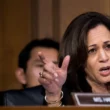Lessons from the Iran nuclear deal
July 16, 2015
Iran has reached a deal with leading states in the international system to "ensure that Iran’s nuclear programme will be exclusively peaceful." Building on the November 2013 Joint Plan of Action and the April 2015 agreed parameters for a Joint Comprehensive Plan of Action, this hopefully final settlement of the dispute over Iran’s nuclear activities offers important lessons for those wanting to make progress towards nuclear disarmament and a more peaceful world.
First, nuclear diplomacy can work. But it requires hard political work of many kinds. The headlines about the Iran deal stress the more than two years of intense talks, often involving foreign minister-level negotiations among seven states (Iran, China, France, Germany, Russia, the United Kingdom, and the United States) and with the European Union’s representative. Less visible was the creative technical and policy analysis work from within and outside governments to create options for negotiators to find common ground. The bedrock of the whole effort, however, was the patient grassroots work to engage and mobilize public constituencies that brought to power leaders in the United States and in Iran willing to engage with each other and to take risks for a more peaceful relationship between their countries.
A second lesson: International nuclear politics is bound to domestic politics, for good and ill. The Iran agreement has come despite determined hostility from conservatives within the United States, Israel, Saudi Arabia, the Gulf states, and Iran. Seeing the world as a hierarchy shaped by power and fear, and locked in rigid, exclusivist national or religious identities, they press for advantage and privilege or to maintain the status quo. Sharing a propensity for mistrust, coercion, and violence, they would risk war with those they see as enemies rather than try dialogue and possible agreement on a peaceful future based on the ideals of equity and respect for others. These opponents will derail the Iran deal if they can. None may have more power to do so than the Republicans and the Democrats allied to Israel in the United States Congress. The challenge for supporters of the deal in the United States is to make their democracy work.
Third, nuclear disarmament issues do not exist in isolation. Some arguments and actions in support of the deal, especially in the United States, could make things worse, not better, in the long term in the Middle East. In his efforts to sell the deal, President Obama has talked about offering expanded military assistance to Israel, Saudi Arabia, and the other Gulf states. Building up these military alliances and the capability for war means the threat of force against Iran will grow larger and the generals in Iran will respond in kind. This shall serve only to fan the many wars already blazing in the region and fuel the next round of an arms race. It is not a path to a safer, more secure, and more peaceful Middle East. The region would be better served by starting foreign minister-level talks and doing hard political work aimed at ending the catastrophic wars and humanitarian tragedies in Syria, Iraq, Yemen, and Libya and ending the Israeli occupation of the Palestinian territories.
Zia Mian
Program on Science & Global Security
Princeton University













